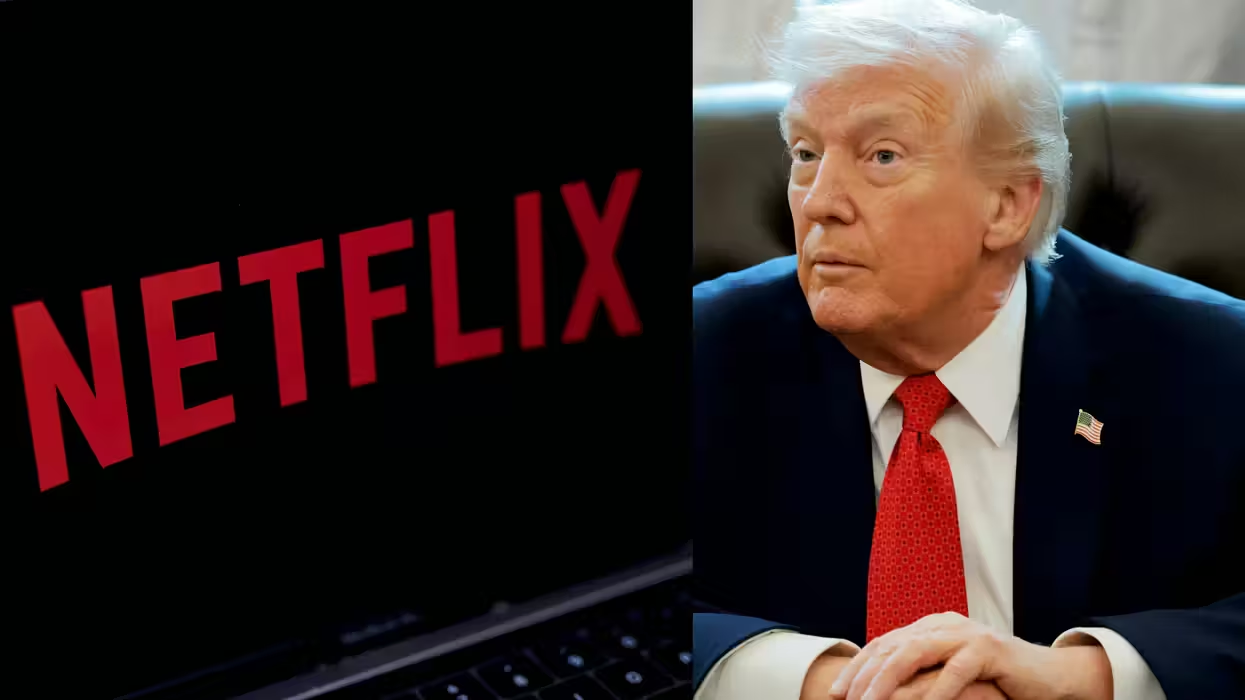
© 2025 Blaze Media LLC. All rights reserved.
Could the Republican Party become the champion of innovative copyright reform? Could the GOP dust itself off, clear the cob webs from its brain, and rebrand itself with new ideas to appeal to a younger generation? The answer seemed to be, yes, after the Republican Study Committee released an eyebrow-raising memo on copyright reform. However, less than 24 hours later conservative champion and RSC Executive Director Paul Teller issued a formal retraction, apologizing for the oversight error that had allowed the memo’s escape. Shortly thereafter the memo’s author, RSC staffer Derek Khanna, was fired, effectively exiled from Republican politics.
Whatever your view of his suggested reforms, the firing of Derek Khanna illustrates two growing problems for the conservative movement: First, the RSC is being bullied by lobbyists and establishment Republicans; second, but related to the first, resistance to new ideas is stifling attempts to reach an increasingly young electorate. If the conservative movement has any hope of returning to its former glory in 2014, or in the ever-distant Post-Obama Era, then both of these problems demand serious attention.
For starters, what is the Republican Study Committee and why is it important to the conservative movement? The RSC, founded in 1973 by Paul Weyrich, is an alliance of more than 170 conservatives in the House of Representatives. Formed to check the power of moderate Republican leadership, the RSC regularly offers policy alternatives that are, in a word, conservative. The best example is the RSC’s annual budget alternative, an exercise that underscores the perennial failure of Congress to reign in its fiscal profligacy.
Put simply, the RSC is the organ in Congress that translates conservative principles and values into conservative policies. Mr. Khanna’s ordeal, unfortunately, points to the sad fact that conservative principles and values are not the only thing influencing RSC policy. Not by a long shot. The copyright kerfuffle prompts several questions, the most important of which are, why was Mr. Khanna fired? And who pushed for his termination?
Given that the memo was formally released and disseminated, someone at the RSC sympathized with his views. Khanna is not some memo-writing vigilante attempting to impose his wonton vision of DJ mix tapes and Singularity on conservative policymakers. A spokesman later said the memo reflected too small a spectrum of conservative thinking and was released due to an oversight in the review process. That justifies retraction. But punishing the memo’s author? Hardly.
Although it has previously been suggested that lobbyist pressure forced the RSC flip-flop, Capitol Hill sources now report that Rep. Marsha Blackburn (R-Tenn.) and Chief of Staff Michael R. Platt, Jr. were the driving forces behind Khanna’s firing. Although Blackburn, beholden to the Nashville record industry, probably wanted Khanna’s pro-public interest, pro-Constitution copyright ideas nixed, Platt is the more likely culprit.
Platt is the spawn of an incestuous relationship between congress and its lobbyists in Washington’s revolving door culture. He worked in Blackburn’s office for several years before becoming a government relations executive for the Recording Industry Association of America. After four years as a RIAA lobbyist, Platt walked back through the revolving door into a cozy gig with his old boss. In other words, a former lobbyist for a group interested in preserving the status quo of copyright law is now the Chief of Staff to the representative who wished for draconian punishment of Khanna, the author of a memo on copyright reform.
So, if lobbyists can exercise control of RSC policy and personnel, how deep does their control extend?
Problematically, the firing of Khanna is symptomatic of a broader trend within GOP politics. That is, Khanna was merely a victim of the Republican establishment’s purging of conservatives from positions of power or influence. Although House Speaker John Boehner cannot control the RSC directly, he has found other ways to punish dissent, like stripping RSC members of important committee assignments, as he has done with Reps. Tim Huelskamp (R-Kan.), Justin Amash (R-Mich.) and David Schweikert (R-Ariz.).
Former RSC Chiar Rep. Jim Jordan (R-Ohio) has trouble explaining how ousting RSC members from important committee positions is anything but punishment for opposing Boehner’s diktats. Speaking at the American Enterprise Institute, Jordan said, “Come on, Tim Huelskamp, From Kansas? He represents 70 percent of his state. The member of that district has been on the Agriculture Committee…since there’s been an Agriculture Committee, since Kansas has been a state… He gets kicked off that committee and oh, by the way, he has a PhD in Agricultural Policy. It absolutely makes no sense to me.”
 Former RSC Chiar Rep. Jim Jordan (R-Ohio) (AP Photo)
Former RSC Chiar Rep. Jim Jordan (R-Ohio) (AP Photo)
Much as Huelskamp is eminently qualified to serve on the Agriculture Committee, Khanna is superbly credentialed to speak to intellectual property laws. (His CV paints the picture of the ultimate IP wonk.) But let’s take a look at the memo itself and see what lurid suggestions ultimately cost Khanna his job.
“RSC Public Policy Brief: Three Myths about Copyright Law and Where to Start to Fix it,” was released on November 16, 2012 on RSC letterhead. The introduction states its intention to examine possible copyright reforms that will lead to “more economic development for the private sector and to a copyright law that is more firmly based on constitutional principles.” I suggest you read it yourself, but here are the three myths Khanna bursts: (1) The purpose of copyright is to compensate the creator of the content; (2) Copyright is free market capitalism at work; (3) The current copyright legal regime leads to the greatest innovation and productivity.
Based on such sources as the Constitution (Article I, Section 8, Clause 8), basic laissez faire economics, and a history of copyright law since the Copyright Act of 1790, Khanna shows how: (1) The Founding Fathers intended copyright laws to serve the public interest; (2) Copyright law, being a government condoned monopoly, violates every free market principles; (3) The current legal regime is overly litigious, stifles competition, and rewards legal skill over innovations in science and the useful arts.
Whatever your views on copyright, Khanna’s suggestions are far from radical and far from the sort of thing that should have cost him his job. However, in today’s Republican Party, and apparently in the RSC, too, original ideas are a cardinal sin, especially when they grind against the wishes of establishment Republicans and revolving door lobbyists.
In these trying times, conservatives need more than ever to champion innovative ideas like those of Derek Khanna.
Want to leave a tip?
We answer to you. Help keep our content free of advertisers and big tech censorship by leaving a tip today.
Want to join the conversation?
Already a subscriber?
more stories
Sign up for the Blaze newsletter
By signing up, you agree to our Privacy Policy and Terms of Use, and agree to receive content that may sometimes include advertisements. You may opt out at any time.
Related Content
© 2025 Blaze Media LLC. All rights reserved.
Get the stories that matter most delivered directly to your inbox.
By signing up, you agree to our Privacy Policy and Terms of Use, and agree to receive content that may sometimes include advertisements. You may opt out at any time.






